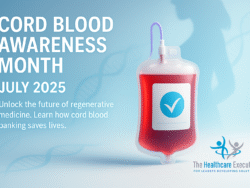National Infertility Awareness Week – April 2025

- Posted by Greg Wahlstrom, MBA, HCM
- Posted in Health Observance Calendar
Executive Leadership for Reproductive Access and Equity
Published: April 21, 2025
National Infertility Awareness Week, observed April 21–27, 2025, draws critical attention to the 1 in 6 people globally affected by infertility, according to the World Health Organization. For health system leaders, this observance is an opportunity to evaluate how hospitals address reproductive health equity and access. Infertility is not only a clinical condition but a public health issue shaped by income, race, insurance coverage, and institutional policy. From coverage limitations on fertility services to barriers faced by LGBTQ+ and single individuals, structural disparities must be addressed by hospital executives. Leading organizations like RESOLVE: The National Infertility Association provide toolkits to support awareness and advocacy, and health systems are encouraged to join the national conversation. Executives should explore how patient navigation, benefits design, and philanthropic partnerships can expand access to fertility care. This week provides a platform to challenge stigmas and elevate support for reproductive endocrinology and maternal-fetal medicine teams. Additionally, it reinforces the need for culturally competent care models that validate a broad range of family-building experiences. Reproductive care equity is not a siloed issue—it reflects the values and vision of the system as a whole.
Hospital executives are uniquely positioned to drive structural and operational changes that improve access to fertility services. These services range from diagnostics and medication to in vitro fertilization (IVF), egg preservation, and gestational carrier coordination. Institutions like Brigham and Women’s Hospital offer multidisciplinary infertility clinics that coordinate care across endocrinology, surgery, mental health, and financial counseling. These programs thrive when executive leaders allocate sufficient space, staffing, and marketing resources to normalize fertility care within broader women’s and family health service lines. Health systems should also evaluate the inclusion of fertility coverage in employee health benefits, particularly for those undergoing cancer treatment or managing chronic conditions. For Medicaid and underserved populations, partnerships with state-level advocacy groups and telehealth platforms can create entry points where none previously existed. Executives should view infertility access as a retention strategy, a health equity issue, and a reputational differentiator. This observance week is the right time to brief hospital boards on current service gaps, market demand, and regulatory trends impacting reproductive care. Infertility is not a niche issue—it’s a frontline concern for today’s healthcare leaders.
Reproductive health equity must remain central to executive strategy during National Infertility Awareness Week. Data shows that Black women are twice as likely to experience infertility but only half as likely to seek or receive care, according to the National Institutes of Health. Language barriers, cultural stigma, implicit bias, and cost are recurring barriers across diverse communities. Hospitals can respond by ensuring reproductive services are available in multiple languages, that marketing reflects inclusive family models, and that provider training covers cultural sensitivity in fertility care. A strong example can be found at Mount Sinai Health System, where infertility programs are part of their larger Women’s Health Equity Initiative. Executive leadership must commit to equity dashboards, patient experience data, and community partnership development that includes fertility access as a measurable priority. Fertility care also intersects with mental health, especially among patients experiencing miscarriage, repeated IVF failure, or delayed conception. National Infertility Awareness Week is a call for emotionally intelligent leadership that views patients not as procedures, but as people navigating complex journeys. The way we lead in this space reflects who we are as a system.
Technology and policy also play pivotal roles in expanding access to fertility care, and executives should stay ahead of both. The rise of virtual fertility clinics and AI-based ovulation tracking tools presents opportunities to integrate digital solutions within health system strategy. Health systems can co-brand digital fertility programs, build referral pipelines, or license new platforms that extend access while reducing physical barriers. At the policy level, 21 states currently mandate some form of infertility insurance coverage, yet gaps remain, particularly for Medicaid populations and LGBTQ+ individuals. Executives should align with state hospital associations and national organizations like ASRM to advocate for inclusive policy reforms. Risk-management teams should also evaluate the ethical and legal frameworks around embryo storage, surrogacy, and cross-border reproductive arrangements. This observance week is a time for cross-functional leadership—uniting compliance, operations, philanthropy, and patient services under one cohesive reproductive health vision. Hospital systems that act boldly in this space can lead the national narrative on equitable, modern, and patient-centered fertility care. Transformation starts at the top.
As we recognize National Infertility Awareness Week, healthcare executives have a rare opportunity to affirm their role in shaping inclusive, compassionate, and clinically excellent reproductive care. Hospitals that fail to address infertility risk falling behind in meeting patient expectations, physician alignment, and reputational benchmarks. Boards of directors should be briefed on fertility-related service gaps, workforce needs, insurance trends, and philanthropy opportunities tied to access. Public affairs teams can align messaging with national awareness campaigns, while internal communications should uplift clinicians and patient stories that humanize the infertility experience. Consider creating a landing page that outlines your system’s reproductive resources, treatment pathways, and financial counseling services. Invite reproductive endocrinologists, OB/GYNs, behavioral health clinicians, and patient advocates to shape long-term fertility strategy at the leadership table. Infertility care reflects every principle of modern healthcare: equity, access, integration, and compassion. Executive leadership can turn this awareness week into an inflection point for institutional change. The future of family-building begins with the decisions we make today.
Discover More
Learn how executive leadership is advancing reproductive health equity and inclusive care models.



